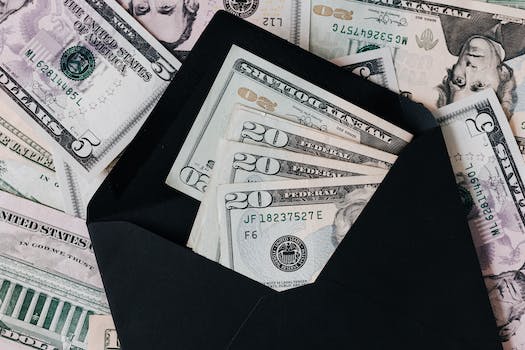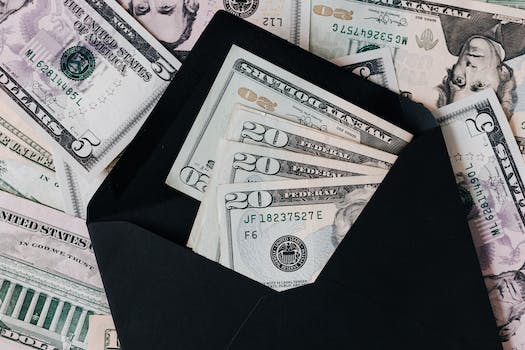How To Save Money For A House
Introduction

Saving money for a house can seem like a daunting task, but with a solid plan and some discipline, it is achievable. In this article, we will discuss some tips and strategies for saving money for a house.
Create A Budget Plan
Buying a house is a significant investment, and it requires a lot of planning and preparation. One of the most crucial aspects of buying a house is saving enough money for a down payment. Saving money can be challenging, especially if you have other financial obligations. However, with a little bit of discipline and planning, you can save enough money for a down payment on your dream home. In this article, we will discuss some tips on how to save money for a house.
The first step in saving money for a house is to create a budget plan. A budget plan will help you track your expenses and identify areas where you can cut back on spending. Start by listing all your monthly expenses, including rent, utilities, groceries, transportation, and entertainment. Once you have a clear picture of your monthly expenses, you can identify areas where you can reduce your spending.
One way to reduce your expenses is to cut back on unnecessary purchases. For example, instead of eating out every day, you can pack your lunch to work. You can also reduce your entertainment expenses by finding free or low-cost activities to do with your friends and family. Another way to save money is to negotiate your bills. You can call your service providers and ask for a better deal on your cable, internet, or phone bills.
Once you have identified areas where you can reduce your spending, you can create a savings plan. Start by setting a savings goal for your down payment. A good rule of thumb is to save at least 20% of the purchase price of the house. For example, if you plan to buy a house that costs $300,000, you should aim to save $60,000 for the down payment.
To achieve your savings goal, you can set up a separate savings account for your down payment. You can also automate your savings by setting up a direct deposit from your paycheck to your savings account. This way, you won’t have to worry about transferring money manually every month.
Another way to save money for a house is to increase your income. You can do this by taking on a side hustle or finding a higher-paying job. You can also sell items that you no longer need or use. For example, you can sell clothes, electronics, or furniture that are in good condition.
In addition to saving money, you should also work on improving your credit score. A good credit score will help you qualify for a lower interest rate on your mortgage, which can save you thousands of dollars over the life of the loan. To improve your credit score, you should pay your bills on time, keep your credit card balances low, and avoid opening new credit accounts.
In conclusion, saving money for a house requires discipline, planning, and patience. By creating a budget plan, reducing your expenses, setting a savings goal, automating your savings, increasing your income, and improving your credit score, you can save enough money for a down payment on your dream home. Remember, buying a house is a significant investment, and it’s essential to take the time to plan and prepare for it. With these tips, you can achieve your goal of homeownership and enjoy the benefits of owning a home.
Cut Down On Unnecessary Expenses
Buying a house is a big investment, and it requires a lot of planning and preparation. One of the most important aspects of buying a house is saving enough money for a down payment. This can be a daunting task, but with some careful planning and a few lifestyle changes, it is possible to save enough money for a house.
One of the first steps to saving money for a house is to cut down on unnecessary expenses. This means taking a hard look at your spending habits and identifying areas where you can cut back. One of the easiest ways to do this is to create a budget. A budget will help you track your expenses and identify areas where you can save money.
One of the biggest expenses for most people is food. Eating out can be expensive, and it can add up quickly. One way to save money on food is to cook at home. This not only saves money, but it is also healthier. You can also save money by buying groceries in bulk and planning your meals in advance.
Another area where you can cut down on expenses is entertainment. Going to the movies, concerts, and sporting events can be expensive. Instead, consider finding free or low-cost activities in your community. This could include hiking, biking, or visiting local museums.
Transportation is another area where you can save money. If you live in an area with good public transportation, consider using it instead of driving. This can save you money on gas, maintenance, and insurance. If you do need a car, consider buying a used car instead of a new one. Used cars are often much cheaper and can be just as reliable.
One of the biggest expenses for many people is housing. If you are currently renting, consider downsizing to a smaller apartment or moving to a less expensive area. You can also save money by finding a roommate to split the rent and utilities with.
Another way to save money is to cut down on your utility bills. This can be done by turning off lights and electronics when you are not using them, using energy-efficient appliances, and adjusting your thermostat to save on heating and cooling costs.
Finally, consider cutting down on your clothing expenses. Instead of buying new clothes, consider shopping at thrift stores or consignment shops. You can also save money by buying clothes out of season or waiting for sales.
In conclusion, saving money for a house requires a lot of planning and preparation. One of the most important steps is to cut down on unnecessary expenses. This can be done by creating a budget, cooking at home, finding free or low-cost activities, using public transportation, downsizing your housing, cutting down on your utility bills, and reducing your clothing expenses. With some careful planning and a few lifestyle changes, it is possible to save enough money for a down payment on a house.
Increase Your Income
Buying a house is a big investment, and it requires a lot of planning and preparation. One of the most important aspects of buying a house is saving enough money for a down payment. While it may seem daunting, there are several ways to increase your income and save money for a house.
One of the easiest ways to increase your income is to take on a part-time job. This can be anything from working at a retail store to freelancing in your area of expertise. Not only will this provide you with extra income, but it will also give you valuable experience and skills that you can use in the future.
Another way to increase your income is to sell items that you no longer need or use. This can be anything from clothes to electronics to furniture. You can sell these items online through websites like eBay or Craigslist, or you can have a garage sale. Not only will this provide you with extra income, but it will also help you declutter your home and simplify your life.
If you have a talent or skill that you can monetize, consider starting a side hustle. This can be anything from tutoring to pet-sitting to freelance writing. There are many websites and apps that can help you find clients and gigs, such as Upwork and Fiverr. Starting a side hustle can be a great way to earn extra income and build your skills and experience.
If you have a full-time job, consider asking for a raise or promotion. This can be a difficult conversation to have, but if you have been with your company for a while and have been performing well, it may be worth asking. Make sure to do your research and come prepared with examples of your accomplishments and contributions to the company.
Another way to increase your income is to invest in stocks or mutual funds. While this can be risky, it can also provide you with a significant return on your investment. Make sure to do your research and consult with a financial advisor before investing any money.
Finally, consider renting out a room in your home or renting out your car. There are many websites and apps that can help you find renters, such as Airbnb and Turo. Renting out a room or your car can provide you with extra income without requiring much effort on your part.
In conclusion, there are many ways to increase your income and save money for a house. Whether you take on a part-time job, sell items you no longer need, start a side hustle, ask for a raise or promotion, invest in stocks or mutual funds, or rent out a room or your car, there are plenty of options available to you. Remember to do your research and consult with a financial advisor before making any major financial decisions. With a little effort and planning, you can increase your income and save enough money for a down payment on your dream home.
Open A High-Yield Savings Account
Buying a house is a significant investment, and it requires a lot of financial planning. Saving money for a house can be a daunting task, but it is achievable with the right strategy. One of the best ways to save money for a house is by opening a high-yield savings account.
A high-yield savings account is a type of savings account that offers a higher interest rate than a traditional savings account. The interest rate on a high-yield savings account can be as much as 20 times higher than a regular savings account. This means that you can earn more money on your savings, which can help you reach your savings goal faster.
When choosing a high-yield savings account, it is essential to compare the interest rates and fees of different banks. Some banks may require a minimum balance or charge monthly maintenance fees, which can eat into your savings. Look for a bank that offers a high-interest rate and has no fees or low fees.
Once you have opened a high-yield savings account, it is essential to make regular deposits. Set up automatic transfers from your checking account to your savings account each month. This will help you save money consistently and make it easier to reach your savings goal.
Another way to save money for a house is by setting a budget and cutting back on unnecessary expenses. Look for ways to reduce your monthly expenses, such as canceling subscriptions or eating out less often. Every dollar you save can be put towards your savings goal.
It is also important to have a clear savings goal in mind. Determine how much money you need to save for a down payment and closing costs. This will help you stay motivated and focused on your savings goal.
In addition to saving money, it is also important to invest your savings wisely. Consider investing in low-risk investments, such as a certificate of deposit (CD) or a money market account. These types of investments offer higher interest rates than a savings account and are still relatively low-risk.
Finally, it is essential to be patient and stay committed to your savings goal. Saving money for a house can take time, but it is worth it in the end. Keep track of your progress and celebrate small milestones along the way.
In conclusion, opening a high-yield savings account is an excellent way to save money for a house. It offers a higher interest rate than a traditional savings account and can help you reach your savings goal faster. Remember to compare different banks, make regular deposits, set a budget, invest wisely, and stay committed to your savings goal. With these tips, you can achieve your dream of owning a home.
Consider A Side Hustle
Buying a house is a significant investment, and it requires a lot of money. Saving up for a house can be a daunting task, especially if you’re on a tight budget. However, there are several ways to save money for a house, and one of them is by considering a side hustle.
A side hustle is a job or business that you do in addition to your regular job. It’s a great way to earn extra income and save money for a house. There are many side hustles that you can consider, depending on your skills and interests.
One of the most popular side hustles is freelancing. If you have a skill that you can offer, such as writing, graphic design, or web development, you can offer your services on freelance platforms like Upwork or Fiverr. Freelancing allows you to work from home and set your own hours, which makes it a great option for those who have a full-time job.
Another side hustle that you can consider is selling items online. You can sell items that you no longer need or want on platforms like eBay or Amazon. You can also buy items at a low price and resell them for a profit. This is a great way to earn extra income and declutter your home at the same time.
If you’re good at photography, you can also consider selling your photos online. There are many websites that allow you to sell your photos, such as Shutterstock or iStock. You can also offer your photography services to local businesses or individuals.
If you’re good at teaching, you can also consider tutoring as a side hustle. You can offer your services to students in your area or offer online tutoring services. This is a great way to earn extra income and help others at the same time.
Another side hustle that you can consider is pet-sitting or dog-walking. Many people need someone to take care of their pets while they’re away, and you can offer your services to them. This is a great way to earn extra income and spend time with animals.
In conclusion, a side hustle is a great way to earn extra income and save money for a house. There are many side hustles that you can consider, depending on your skills and interests. Freelancing, selling items online, selling photos, tutoring, and pet-sitting are just a few examples of side hustles that you can consider. Remember, the key to a successful side hustle is to find something that you enjoy doing and that fits into your schedule. With a little bit of effort and dedication, you can earn extra income and achieve your goal of buying a house.
Look For Ways To Save On Housing Costs
Buying a house is a big investment, and it can be challenging to save up enough money for a down payment. However, with some careful planning and budgeting, it is possible to save money for a house. One of the best ways to do this is to look for ways to save on housing costs.
The first step in saving money for a house is to evaluate your current housing situation. If you are renting, consider downsizing to a smaller apartment or moving to a less expensive neighborhood. You can also look for roommates to split the cost of rent and utilities. If you own a home, consider refinancing your mortgage to get a lower interest rate or selling your home and downsizing to a smaller one.
Another way to save money on housing costs is to reduce your utility bills. This can be done by making your home more energy-efficient. You can do this by installing energy-efficient appliances, sealing air leaks, and adding insulation to your home. You can also reduce your water bill by fixing leaks and installing low-flow showerheads and toilets.
If you are looking to save money for a house, it is also important to reduce your debt. This can be done by paying off credit card balances and other high-interest debt. You can also consolidate your debt into a single loan with a lower interest rate. By reducing your debt, you will have more money available to save for a down payment on a house.
Another way to save money for a house is to cut back on your expenses. This can be done by creating a budget and sticking to it. Look for ways to reduce your monthly expenses, such as cutting back on dining out, entertainment, and other non-essential expenses. You can also save money by shopping for groceries and other essentials at discount stores and using coupons and other discounts.
If you are looking to save money for a house, it is also important to increase your income. This can be done by taking on a part-time job or starting a side business. You can also ask for a raise at your current job or look for a higher-paying job. By increasing your income, you will have more money available to save for a down payment on a house.
Finally, it is important to be patient and persistent when saving money for a house. It may take several years to save up enough money for a down payment, but with careful planning and budgeting, it is possible. Keep your goal in mind and stay focused on saving money. Remember that every little bit helps, and even small savings can add up over time.
In conclusion, saving money for a house requires careful planning and budgeting. Look for ways to save on housing costs, reduce your debt, cut back on expenses, increase your income, and be patient and persistent. With these strategies, you can save up enough money for a down payment on a house and achieve your dream of homeownership.
Use A Down Payment Assistance Program
Buying a house is a big investment, and it can be challenging to save up enough money for a down payment. However, there are several ways to make the process easier, and one of them is by using a down payment assistance program.
A down payment assistance program is a type of financial aid that helps homebuyers cover the cost of their down payment. These programs are typically offered by state and local governments, non-profit organizations, and even some employers. They can provide a range of benefits, including grants, loans, and tax credits.
One of the most significant advantages of using a down payment assistance program is that it can help you save money. Depending on the program, you may be able to receive a grant or loan that covers all or part of your down payment. This can be a significant relief, especially if you’re struggling to save up enough money on your own.
Another benefit of using a down payment assistance program is that it can help you qualify for a mortgage. Many lenders require a minimum down payment of 20% of the home’s purchase price. However, if you don’t have that much money saved up, you may not be able to qualify for a mortgage. By using a down payment assistance program, you can increase your chances of getting approved for a mortgage and buying the home of your dreams.
To qualify for a down payment assistance program, you’ll need to meet certain eligibility requirements. These requirements vary depending on the program, but they typically include income limits, credit score minimums, and residency requirements. You’ll also need to complete an application and provide documentation to prove your eligibility.
If you’re interested in using a down payment assistance program, the first step is to research the programs available in your area. You can start by contacting your state or local housing authority or visiting their website. You can also search online for non-profit organizations that offer down payment assistance programs.
Once you’ve found a program that you’re interested in, you’ll need to apply. The application process typically involves filling out a form and providing documentation to prove your eligibility. You may also need to attend a homebuyer education course, which can help you learn more about the homebuying process and how to manage your finances.
If you’re approved for a down payment assistance program, you’ll receive the funds you need to cover your down payment. Depending on the program, you may need to repay the funds over time, or they may be forgiven after a certain period. Be sure to read the terms and conditions of the program carefully so that you understand your obligations.
In conclusion, using a down payment assistance program can be an excellent way to save money for a house. These programs can provide financial aid that covers all or part of your down payment, making it easier to qualify for a mortgage and buy the home of your dreams. If you’re interested in using a down payment assistance program, be sure to research the programs available in your area and apply as soon as possible. With a little help, you can achieve your dream of homeownership and start building equity in your own home.
Conclusion
Conclusion: Saving money for a house requires discipline, patience, and a solid plan. It is important to set a realistic budget, cut unnecessary expenses, increase income, and save consistently. By following these steps, anyone can achieve their goal of owning a home.





